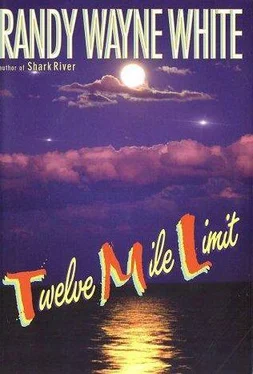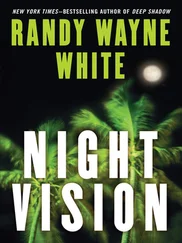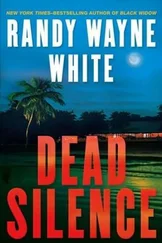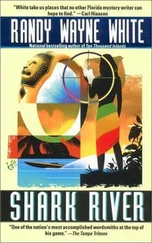Randy White - Twelve Mile Limit
Здесь есть возможность читать онлайн «Randy White - Twelve Mile Limit» весь текст электронной книги совершенно бесплатно (целиком полную версию без сокращений). В некоторых случаях можно слушать аудио, скачать через торрент в формате fb2 и присутствует краткое содержание. Жанр: Триллер, на английском языке. Описание произведения, (предисловие) а так же отзывы посетителей доступны на портале библиотеки ЛибКат.
- Название:Twelve Mile Limit
- Автор:
- Жанр:
- Год:неизвестен
- ISBN:нет данных
- Рейтинг книги:4 / 5. Голосов: 1
-
Избранное:Добавить в избранное
- Отзывы:
-
Ваша оценка:
- 80
- 1
- 2
- 3
- 4
- 5
Twelve Mile Limit: краткое содержание, описание и аннотация
Предлагаем к чтению аннотацию, описание, краткое содержание или предисловие (зависит от того, что написал сам автор книги «Twelve Mile Limit»). Если вы не нашли необходимую информацию о книге — напишите в комментариях, мы постараемся отыскать её.
Twelve Mile Limit — читать онлайн бесплатно полную книгу (весь текст) целиком
Ниже представлен текст книги, разбитый по страницам. Система сохранения места последней прочитанной страницы, позволяет с удобством читать онлайн бесплатно книгу «Twelve Mile Limit», без необходимости каждый раз заново искать на чём Вы остановились. Поставьте закладку, и сможете в любой момент перейти на страницу, на которой закончили чтение.
Интервал:
Закладка:
Then the cloud was close enough for me to finally define what I was seeing. It was a mist of butterflies, their metallic blue wings shining like mirrors, many thousands of butterflies, rare morpho butterflies, as delicate as rice paper. As they passed over us, we were shadowed from the sun for several seconds, and I could feel the breeze their wings created.
To Keesha, I said, “That is amazing!”
She shrugged. “Why? It is something that happens here.”
Later, as we saw a peccary charge into the water and watched a large cayman submerge in sync, Keesha said, “Food. We will soon need something to eat.”
The distance we covered hour after hour increased as the speed of the river’s current increased, and I knew that we were gradually ascending, moving downward through the forest, certainly toward some larger river, perhaps the Amazon.
Just as I asked questions of Keesha, she sometimes asked questions of me. Once she said, “The woman you seek. Amelia? Do you wish to keep her as a worker or take her as your wife?”
I hadn’t thought about it, so I was surprised at the pleasure it gave me when I said, “As my wife, maybe. It’s something to think about. I’ve never been married. Maybe it’s time.”
Later, Keesha said, “Someday, perhaps I will find a man to marry. But there are so few of them with brains!”
She seemed perplexed by my laughter.
I’d become so accustomed to a world in which we were the only two existing humans, that I was a little surprised-and irrationally peeved-when we began to see other dugouts, men fishing with cast nets, women paddling canoes loaded with baskets of palm fronds, and even a couple canoes driven by small outboards.
“Are we near your village?”
The girl shook her head. “No, I would not live here. This is an evil place. We must go fast now. This is a place called Remate de Males, and a very bad man lives nearby. These people rely on him for their wealth.”
“Will there be a telephone?”
I could sense that she didn’t want to tell me the truth, but she could not do otherwise. “It is possible that there is a telephone.”
“There’s a village, then?”
She gestured with her chin. “Not so far. Two bends from here, where the paranamirims touch. The small rivers, that is our word for them.”
Around the next bend, the river and the world were transformed.
One moment there was rain forest, the next moment the hillsides became a muddy moonscape. A horizon of trees had been scalped off the bare hills, thousands of acres of forest had been clear-cut. Rain had dug gullies down the mountain-sides. The earth was the color of Georgia clay here, so the erosion had turned the river a chalky, chemical orange.
To the girl, I said, “What’s that smell?”
“Up the road from the village, there is a factory where they do something with the wood. I’m not sure what it is.”
I said, “If there’s a factory, then we’ll find a phone.”
The village of Remate de Males was the sort of South American slum that springs up on the perimeter of industry or around tourism centers. The workers have to live somewhere, and very cheap labor can afford only the cheapest of housing.
But this was no place for tourists. Remate de Males consisted of some heavy commercial docks-if there was a pulp factory nearby, boats would have to service it-a few plywood shacks, and dozens of huts made of bamboo, roofed with banana leaves.
Along the muddy bank were a half-dozen dugouts similar to ours. Keesha steered us in among them, and I pulled the boat up far enough so that it wouldn’t drift away.
I asked, “Is there somewhere we can buy some food here? I’m starving.”
She said, “Perhaps, but this is not a good place. It is an evil place. We must not stay long. Believe what I am saying to you.”
“Keesha, I have to get to a phone. I’ll be fine here. Take the boat, and keep going if you want. I’ll understand.”
“No. If I’m on the river alone, the soldiers might capture me again. I would rather die than let that happen.”
I motioned to her with my hand-come on. “Then stay close to me.”
From a woman cooking over a wood fire, I bought a loaf of flat bread, but she refused to sell a small can of beans she was heating.
“Money means very little,” Keesha said, “when there is no food to buy. This village, these people, they stay because of the coins he gives them. I do not understand why.”
Nor did I-though there was something I did understand. Something terrible had happened to the river here. The smell I’d noticed didn’t come from some distant factory. It was the water itself.
I offered the bread to Keesha, then tore off a hunk myself, chewing slowly, troubled by something, but I wasn’t certain what. Then I realized: There was no surface activity, no jump and slap of small fish, nor were there any wading birds. Why? I’d seen hundreds of egrets and herons upriver.
I watched an old man paddle his dugout to the bank and climb out with arthritic care. There was a handmade cast net in the bow of the boat, so I asked, “How was the fishing today?”
He shrugged. “Upriver, I took a few cara-chama, and an acar. ” He lifted the lid off a woven basket to show me the fish: One was long with a bony armor plating, the other two were a peculiar gray with large heads. “Downriver, though, it is dead. Even the paranamirims have been poisoned. There is nothing alive in the water there. A few turtles, perhaps. I’ve been told that a man must paddle several days, all the way to the big water before the river shows life again.”
I asked, “Poisoned by what?”
He made a open-palmed gesture. “When I was a boy, we’d mash the roots of liana or a bush called timbo, and pour the milk in places of still water. All the fish would soon come to the surface, unable to breathe. Perhaps someone has found all the timbo bushes in the world and boiled them.” I helped him pull his canoe onto the bank as he asked, “Do you know something of fish?”
I said, “They are an interest of mine.”
“Then you will find this unusual. Because the lower section of river has died, we’re are now seeing for the first time many botos searching here for food. This far upriver, it is unusual. Our younger men have been hunting them with harpoons.”
I said, “Botos?”
Keesha was eating her bread, listening. “They are hunting botos?” she sputtured. “Are they crazy? That will bring the worst kind of luck to you and all your people!”
The man ignored her, and wagged his finger at me. “Come. If you are a student of fish, I will show you.”
27
The men of Remate de Males were hunting, harpooning, and butchering freshwater dolphins.
In a little circle created by bamboo huts, five Amazonian dolphins had been hung on a crossbeam wedged between two trees. Even after death, the animals were pink in color, bright as flamingos. They were hanging nose-down, tied by their tails. Gravity had engorged their heads with blood, so their small eyes bulged.
As children and women stood watching from the shade, three young men in ragged shorts took turns with a long, curved knife, gutting the animals and carrying the viscera off in buckets. They worked within a glittering ballroom of flies.
To the old man, I said, “This is a tragedy.”
Misunderstanding my meaning, the old man answered, “Yes. It is not a good thing. Only the man on the hill has ice. The flesh of these botos will soon rot, yet the women stand here, doing nothing! They should be constructing bamboo flats for salting. And a good fire for smoking the meat. But these young women, their brains have gone soft. They think only of owning a television set and living in the city.”
Читать дальшеИнтервал:
Закладка:
Похожие книги на «Twelve Mile Limit»
Представляем Вашему вниманию похожие книги на «Twelve Mile Limit» списком для выбора. Мы отобрали схожую по названию и смыслу литературу в надежде предоставить читателям больше вариантов отыскать новые, интересные, ещё непрочитанные произведения.
Обсуждение, отзывы о книге «Twelve Mile Limit» и просто собственные мнения читателей. Оставьте ваши комментарии, напишите, что Вы думаете о произведении, его смысле или главных героях. Укажите что конкретно понравилось, а что нет, и почему Вы так считаете.












